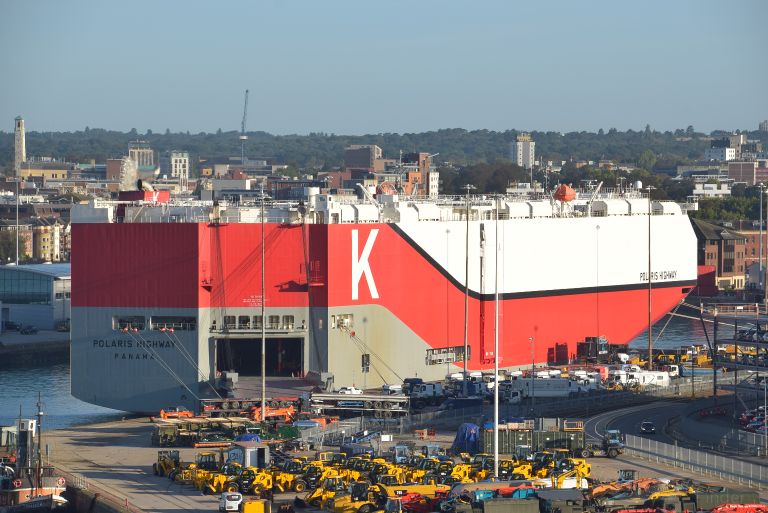Kawasaki Kisen Kaisha, Ltd. (K LINE) announced that the Company has conducted a trial use of marine biofuel which was supplied by global integrated energy company bp on car carrier POLARIS HIGHWAY

“K” LINE signed a deal for marine biofuel supply with bp. The marine biofuel was delivered to the vessel at the Dutch port of Flushing on Nov 6th, 2021. After leaving Europe Emission Control Area, the vessel conducted the trial use of the marine biofuel.
Marine biofuel (Note 1) has the potential to become an environmentally friendly alternative fuel, it will be able to reduce CO2 by about 80-90% in the well-to-wake (from fuel generation to consumption) process without changing current engine specifications.
This marine biofuel uses renewable organic resources such as biomass which don’t utilize as foodstuff and feed crop.
In “K” LINE Environmental Vision 2050 -Blue Seas for the Future- (Note2), we have set the 2030 interim target of improving CO2 emission efficiency by 50% over 2008, surpassing the IMO target of 40% improvement. Furthermore, we set our new target for 2050 as “The Challenge of Achieving Net -Zero GHG Emissions”. As an action plan, we will continue to work on the introduction of new fuels, which have a low environmental impact and take on the challenge of achieving the targets set forth.
(Note1) Biofuel Biofuels are made from renewable organic resources like biomass. Therefore, although CO2 is emitted after its combustion, those emissions are compensated with the CO2 absorbed during the growth of the biogenic sources used as raw materials. Furthermore, for its production, waste and residues that need to be disposed of can be reused. Some examples are Used Cooking Oil collected from restaurants and residential households and animal fats. This will avoid the use of raw materials that compete with food or feed market. Both the biofuels feedstocks origination and its production along the supply chain are sustainability certified following the criteria of international recognized standards so its generation and traceability are guaranteed by independent third party, ultimately contributing to deployment of biofuels as an environmentally friendly alternative to fossil fuels around the world.
(Note2) “K” LINE Environmental Vision 2050 "Blue Seas For the Future" As an action plan for GHG reduction, we are introducing zero-emission fuels such as ammonia and hydrogen fuels, as well as carbon-neutral fuels such as bio-LNG and synthetic fuels.